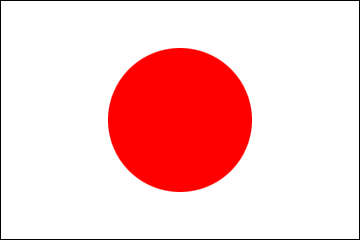アフガン難民解決戦略支援プラットフォーム コア・グループ設立会合における岡庭健大使によるステートメント(令和2年10月7日)
令和2年10月9日
Inaugural Meeting of the Core Group
of the Support Platform for the Solution Strategy for Afghan Refugees (SSAR)
Remarks by Ambassador OKANIWA Ken, Permanent Mission of Japan in Geneva
7 October 2020
of the Support Platform for the Solution Strategy for Afghan Refugees (SSAR)
Remarks by Ambassador OKANIWA Ken, Permanent Mission of Japan in Geneva
7 October 2020
Excellencies, High Commissioner, ladies and gentlemen,
At the outset, Japan thanks UNHCR for arranging the inaugural meeting of the Core Group of the SSAR Support Platform. As one of the first donor countries to join the Core Group, Japan appreciates this opportunity to discuss the next steps for the Platform among the key countries and organizations. This Group should lead the way to make concrete progress on the objectives of the SSAR.
A month ago, we witnessed a historic milestone for the Afghanistan peace process. Japan welcomes the start of the peace talks and strongly hopes that substantial progress will be achieved. Peace and stability is the precondition for achieving voluntary repatriation and sustainable reintegration in Afghanistan. There will be no durable solutions for the Afghan refugee situation without extraordinary efforts to secure peace by the relevant parties. Japan is fully committed to supporting the peace process which is Afghan-led and Afghan-owned.
In this context, the 2020 Afghanistan Conference in November is taking place at a critical juncture in the efforts to achieve peace and development in the country. We must not miss this window of opportunity to pave the way toward achieving durable solutions. We should seek effective way forward in a strategic and practical manner.
Japan commends Pakistan and Iran for having hosted millions of Afghan refugees for the past decades. From a humanitarian standpoint, Japan has been supporting to improve the living environment of Afghan refugees and their host communities in both countries for around 40 years. As you are aware, voluntary repatriation and sustainable reintegration of those refugees are integral parts of development and prosperity in Afghanistan. In particular, young Afghan refugees will play a vital role in the reconstruction and development of their homeland.
Japan has been advocating the humanitarian and development nexus for decades. Madam Ogata pioneered the nexus approach by introducing “the Ogata initiative” in assistance for Afghanistan. Building on her legacy, Japan is pursuing a coherent and seamless approach between the humanitarian and development fields that will have a greater positive impact on both host and returnee countries. In this regard, we are pleased to have UNDP and the World Bank in the Core Group. Japan continues to promote the nexus approach in collaboration with humanitarian and development actors. We recognize the importance of focusing on areas such as education, health and livelihoods. We will continue to discuss the details of specific needs and assistance with UNHCR and relevant authorities.
One of the important tasks of the Core Group is to mobilize diverse stakeholders. Expansion of the donor base, including non-traditional donors and the private sector, is critically important to pursue the objectives of the SSAR. We also need to galvanize engagement of other actors such as development agencies, international financial institutions and civil society. We would like to explore ways to raise awareness of the Afghan refugee situation and involve a wider range of supporters for the SSAR.
Today’s meeting is an important beginning in our joint efforts to achieve durable solutions. In the spirit of solidarity and in close cooperation with other members of the Core Group, Japan is committed to active and constructive engagement in making concrete contributions to the SSAR.
Thank you.
